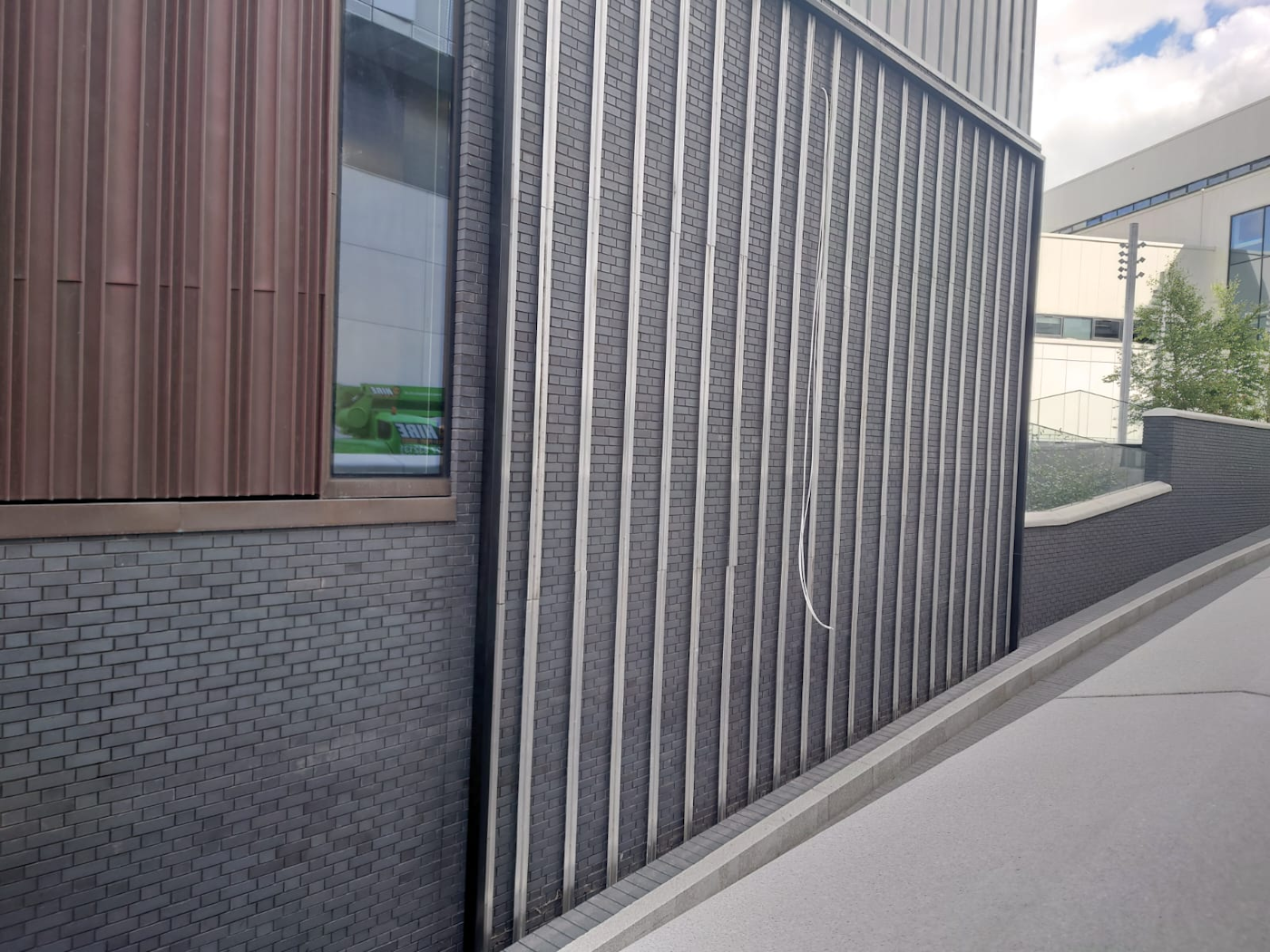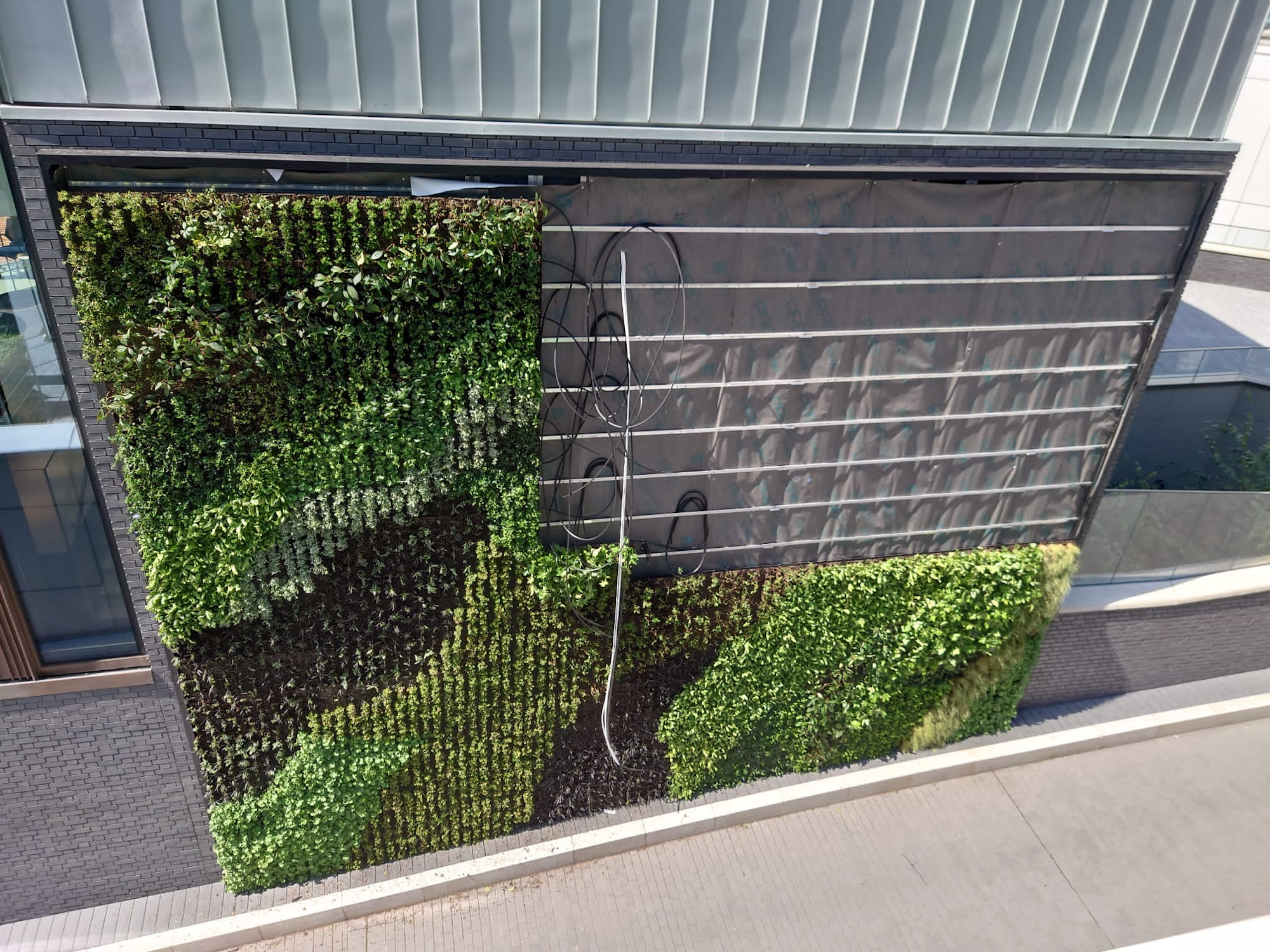Project Background
Tottenham Hotspur Stadium took us on to improve an empty wall which leads up to the stadium itself. Created purely for aesthetics and biophilia, they gave us the task of designing and installing the 90m² natural green wall – just what the area, devoid of nature, needed.
O2 production
- 153g per year
Gas Extraction
- 230g per year
Size: 90m²
Project Drivers
Biophilia
Social Impact
Aesthetics
_mwrga.jpeg?w=2000&q=90&auto=format&fit=crop&crop=edges,focalpoint&fm=png)

_ziauz.jpeg?w=2000&q=90&auto=format&fit=crop&crop=edges,focalpoint&fm=png)
